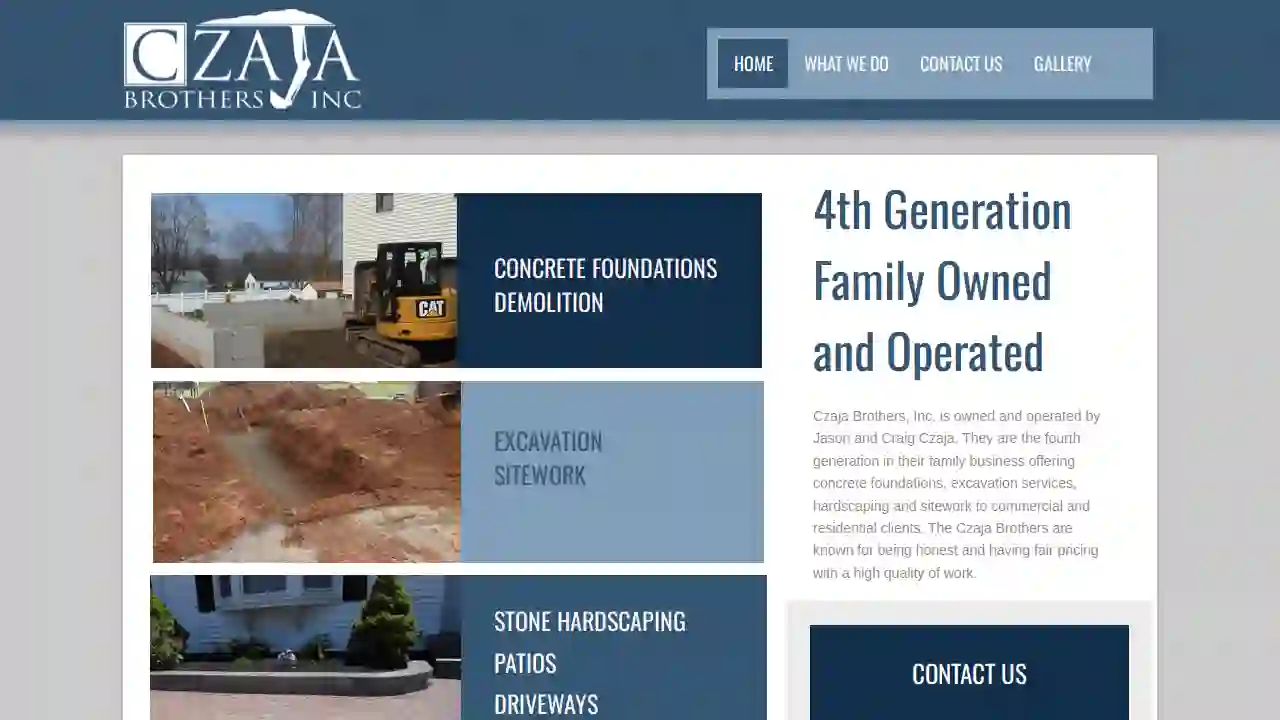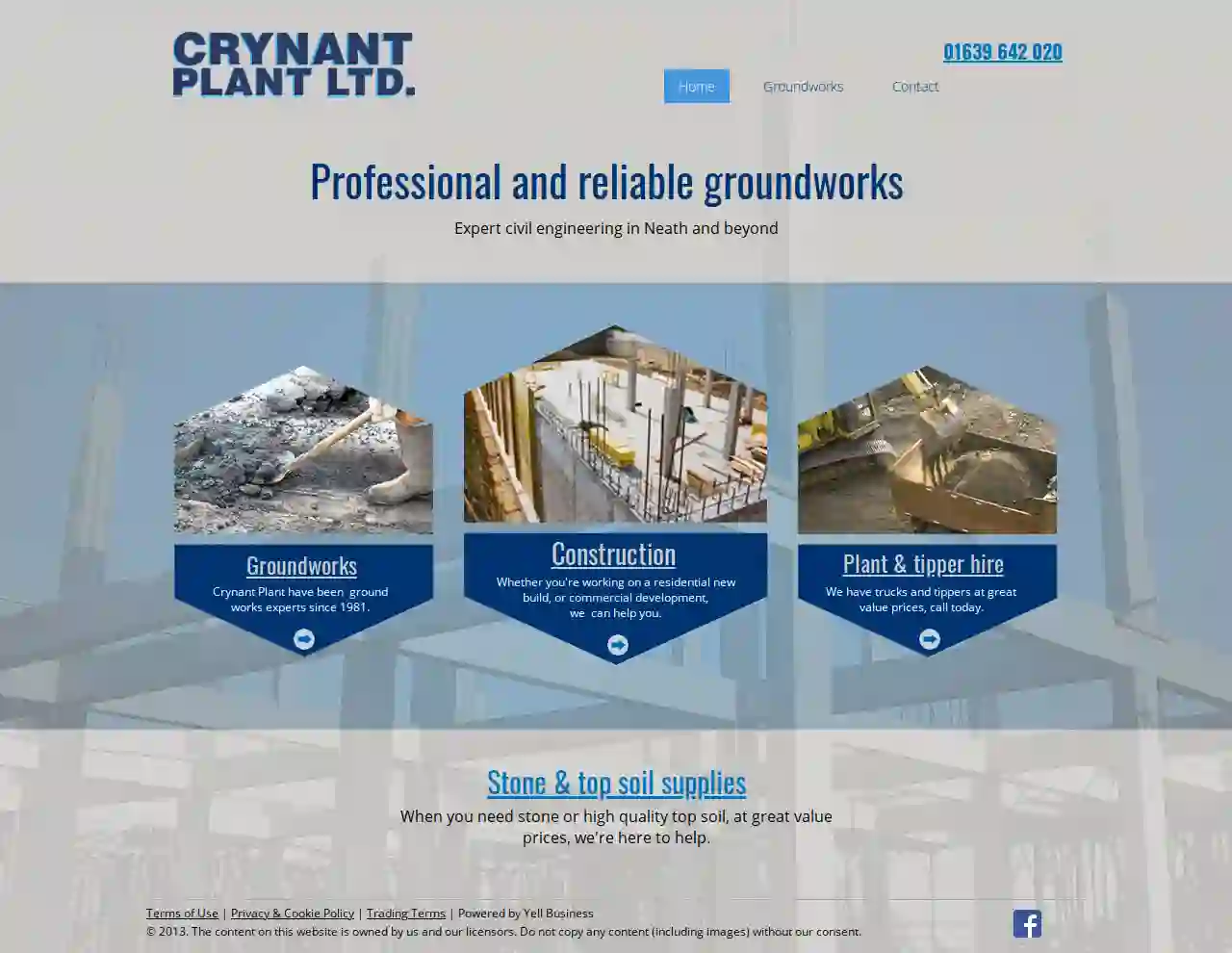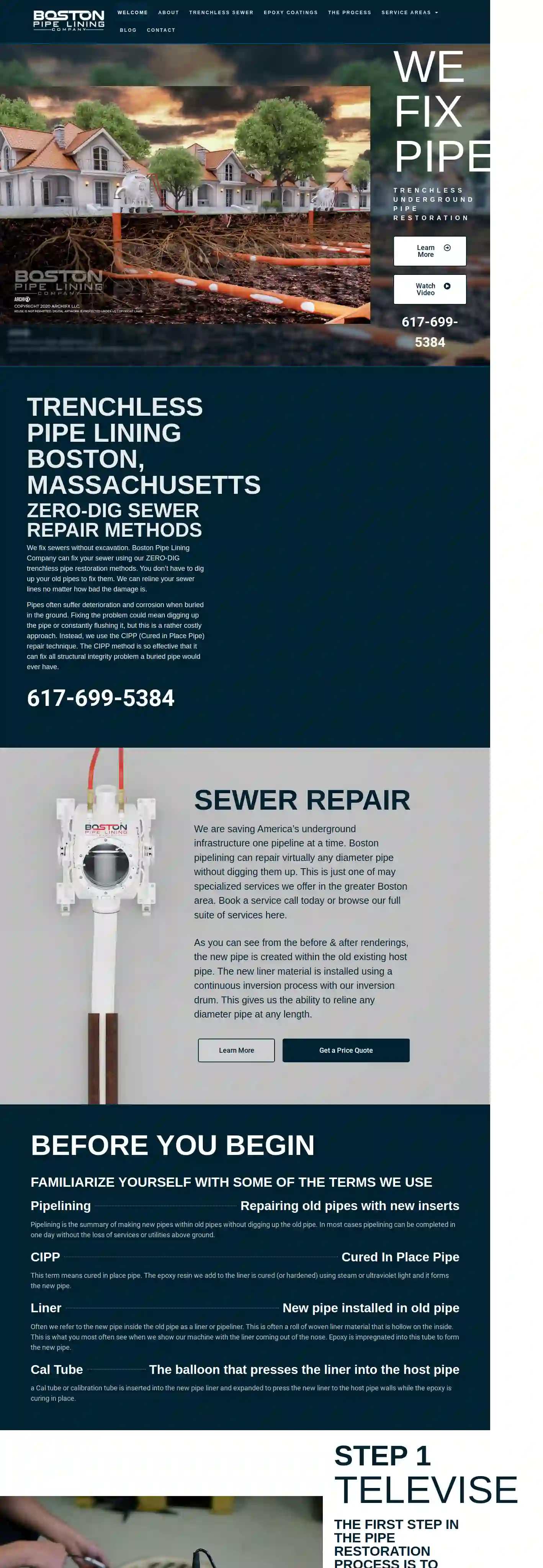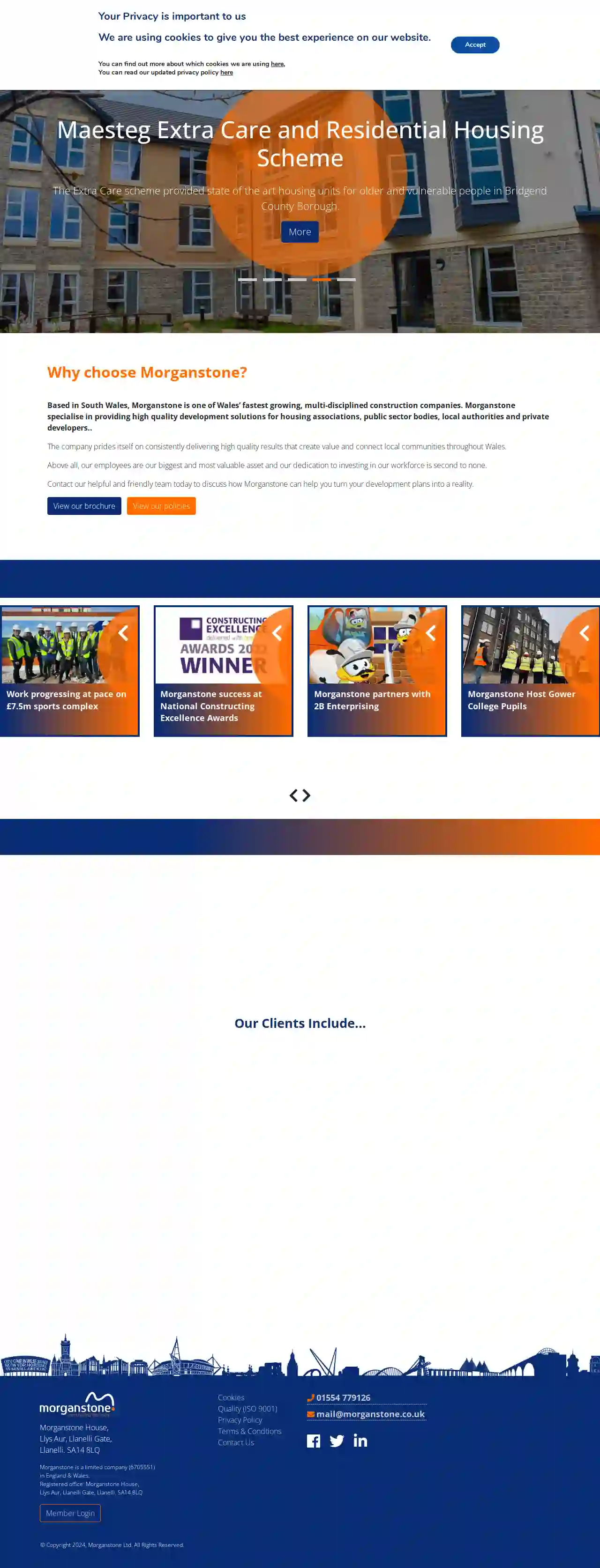Demolition Contractors Moulton Chapel
Top 10 Demolition Contractor in Moulton Chapel
Get up to 3 Building Demolition quotes for your project today! Compare profiles, reviews, accreditations, portfolio, etc... and choose the best deal.

Archaeological Project Services
51 reviewsThe Old School, Cameron Street, The Old School Cameron Street Heckington Lincolnshire, Heckington, NG34 9RW, GBAbout APS Archaeological Project Services (APS) is a long-established organisation offering a comprehensive range of consultancy and fieldwork services. Based in Heckington, Lincolnshire, we serve clients across the construction and development industries, public bodies and private individuals throughout the country. Commission us APS offer cost-effective, tailor-made solutions to all archaeological and cultural heritage needs in the planning and development processes. Our highly experienced project management team will respond quickly to find the right solution for your project, from initial planning through site investigation to mitigation and report publication. Community Support for community-led heritage projects
- Services
- Why Us?
- Gallery
Get Quote
Gold Standard Excavation, LLC
52 reviewsStoughton, 02072, GBAbout Us Gold Standard Excavation, LLC is a premier excavation contractor serving the vibrant community of Stoughton, MA, and beyond. We are committed to providing high-quality excavation services with care, precision, and excellence. Our team of qualified experts utilizes top-of-the-line equipment to ensure that every job is completed promptly, accurately, and within budget. Whether you need septic excavation, site preparation, or any other excavation service, you can always rely on us for precise work and dedicated customer service. Top Services We turn soil into solutions, laying the foundation for your success. Our excavation contractor services offer top-tier expertise in land grading, lot clearing, and excavation. With state-of-the-art equipment and a team of skilled professionals, we ensure timely project completion, budget adherence, and unparalleled customer satisfaction. From initial groundwork to final touches, trust us to excavate your vision into reality. Why Choose Us Gold Standard Excavation, LLC boasts years of experience orchestrating large-scale projects. We take pride in delivering high-quality results, utilizing top-of-the-line equipment, and maintaining pristine, safe work environments at all times. Schedule us today for swimming pool excavation, tree removal, and excavating services of any kind.
- Services
- Why Us?
- Gallery
Get Quote
Next Level Environmental
51 reviews45 Dan Road, Canton, 02021, GBNext Level Environmental, LLC Next Level Environmental, LLC is a professional services firm located in Canton, Massachusetts. Founded in 2018, Next Level is built on the professional and technical expertise accumulated over a combined 20+ years by its founders. Field services offered include specializing in inspecting, maintaining, and rehabilitating buried infrastructure. Typical types of clients include public and private utilities such as department of public works or sewer commissions and construction companies specializing in utility and site work construction. Having deep experience in the environmental industry, Next Level has a significant advantage by providing an integrated approach for managing the challenges utilities face when it comes to their aging infrastructure. We specialize in inspecting, maintaining, and rehabilitating buried infrastructure. Our typical types of clients include public and private utilities such as department of public works or sewer commissions and construction companies specializing in utility and site work construction. Having deep experience in the environmental industry, Next Level has a significant advantage by providing an integrated approach for managing the challenges utilities face when it comes to their aging infrastructure.
- Services
- Why Us?
- Gallery
Get Quote
DOG Excavation
Boston, GBCommitted to Excellence Having worked in Boston and 15+ surrounding cities and towns, I have gained a deep understanding for every clients expectations, worries and needs. We are driven to exceed all expectations and deliver top quality services in an efficient and timely manner without loosing any quality. I provide a wide range of services for all kinds of needs. Whether you’re looking to work on an existing space or undertake a bigger project, I guarantee I can help you achieve the results you seek. Contact me today to receive a free estimate.
- Services
- Why Us?
- Gallery
Get Quote
CZAJA Brothers
51 reviews117 Boston Road, Middletown, 06457, GBCzaja Brothers, Inc. is a family-owned and operated business with a rich history spanning four generations. We specialize in providing high-quality excavation services, concrete foundations, hardscaping, and sitework to both commercial and residential clients throughout Connecticut. Our commitment to honesty, fair pricing, and exceptional workmanship has earned us a reputation for reliability and customer satisfaction. When you choose Czaja Brothers, you can be confident that Jason or Craig Czaja will personally oversee your project from start to finish, ensuring your vision is brought to life with precision and care. Explore our photo gallery to see examples of our past projects and experience the quality that sets us apart.
- Services
- Why Us?
- Our Team
- Gallery
Get Quote
D&D Excavation
11 reviewsBoston, GBAbout DD Excavation DD Excavation is a locally owned and operated business dedicated to providing high-quality excavation services to the [City, State] area. We have a team of experienced and skilled operators who are committed to delivering exceptional results on every project. We understand that excavation projects can be complex and require careful planning and execution. That's why we take a personalized approach to every job, working closely with our clients to ensure their needs are met. Whether you're building a new home, expanding your business, or simply need some land cleared, DD Excavation has the expertise and equipment to get the job done right. Contact us today for a free consultation and let us help you bring your vision to life.
- Services
- Why Us?
- Gallery
Get Quote
Crynant Plant Ltd
Bourne, GBCrynant Plant: Your Trusted Partner for Groundworks, Construction, and More Crynant Plant has been a leading provider of groundworks and civil engineering services in Neath and surrounding areas since 1981. We're a family-run business with a strong commitment to quality, reliability, and customer satisfaction. Whether you're a homeowner embarking on a new build or a commercial developer undertaking a large-scale project, we have the expertise and resources to deliver exceptional results. Our team of skilled professionals is dedicated to providing a comprehensive range of services, including: • Groundworks • Construction • Plant & Tipper Hire • Demolition Services • Stone & Top Soil Supplies • Heavy Haulage • Skip Hire We pride ourselves on our commitment to safety, efficiency, and environmental responsibility. We utilize modern equipment and techniques to ensure projects are completed on time and within budget. Our dedication to customer service means we're always available to answer your questions and address your concerns. Contact us today to discuss your project needs and discover how Crynant Plant can help you achieve your goals.
- Services
- Why Us?
- Accreditations
- Gallery
Get Quote
Boston Pipelining Company
520 reviewsBoston, GBAbout Boston Pipelining Company Boston Pipelining Company was established in 2020, bringing together four decades of expertise in the underground utility industry. We leverage the latest rehabilitation technologies to tackle sewer and pipe issues for our residential, industrial, and commercial clients, minimizing disruption to their daily routines. Our Commitment to Excellence We handle all aspects of your project, providing the necessary equipment, resources, and materials, including pipe lining equipment and supplies, safety gear, testing and inspection equipment. We also supply any additional labor required and manage all licensing and certification needs. Trenchless Technology for a Seamless Experience We empower homeowners, property managers, and businesses to maintain and repair their existing pipes using cutting-edge trenchless pipe lining technology. This innovative no-dig approach eliminates the need for disruptive excavation, preserving your floors, walls, driveway, landscaping, and more.
- Services
- Why Us?
- Gallery
Get Quote
Morganstone Ltd
3.413 reviewsMorganstone House, Llys Aur, Llanelli Gate, Llanelli, SA14 8LQ, GBWho We Are Based in South Wales, Morganstone is one of Wales’ fastest growing, multi-disciplined construction companies. We specialize in providing high quality development solutions for housing associations, public sector bodies, local authorities and private developers. The company prides itself on consistently delivering high quality results that create value and connect local communities throughout Wales. Above all, our employees are our biggest and most valuable asset and our dedication to investing in our workforce is second to none. What We Do We offer a comprehensive range of services, from land acquisition and appraisal to design, construction, and development. We are committed to delivering sustainable and innovative solutions that meet the needs of our clients and the communities we serve. At the heart of the Community We are passionate about creating rewarding, sustainable employment opportunities and are really excited to be working with Remploy and ITS Cymru to help people find their place in the world of work. We are proud to announce that Morganstone are joining the fight against climate change by signing up to the United Nations’ Race to Zero campaign. Team Morganstone – Work With Us Contact our helpful and friendly team today to discuss how Morganstone can help you turn your development plans into a reality.
- Services
- Why Us?
- Gallery
Get Quote
Top Rank Roofing & Masonry Boston
54 reviews317 New Boston St., Woburn, 01801, GBQUALITY ROOFING & MASONRY IN BOSTON Looking to have your roofing, chimneys or masonry renovated, improved upon, extended or a new one installed in Boston? Top Rank Roofing And Masonry can deliver on cost and on time. We cover all styles of roofing & masonry in Boston. STOOPS, STEPS, WALKWAYS Looking at having your stoop, walkway or steps replaced or repaired? We can provide you with a great low cost option. Boston masonry specialists can handle all styles of masonry, natural or manufactured. Call us now to get a quote! PATIO AND TERRACE SERVICES Looking to have some work done on the patio or terrace at your home? Let Top Rank Roofing And Masonry help you with it. We can cater for all types of patio and terrace installations, large or small. Our team is fully qualified and certified in the construction and handling of all types of materials used in patios and terraces. Call us now for more information and a free consultation. QUALITY ROOFING, CHIMNEYS, PATIOS, STOOPS, STEPS AND WALKWAYS Interested in having your roofing, chimneys or patio renovated, improved upon, extended or a new one installed? Top Rank Roofing And Masonry can deliver on cost and on time. We cover all styles of chimneys, roofing, walkway paving, cobble stone with paving and many other styles of masonry for Boston. We are a 3rd generation family business that believes in delivering the highest quality work and customer service possible to all our clients. We hope you enjoy looking around our website. Make sure to check out services page and if you would like a free no obligation quotation, call us now on Office: (617) 719-1219
- Services
- Why Us?
- Testimonials
- Gallery
Get Quote
Over 13,059+ Excavation Pros on our platform
Our excavation providers operate in Moulton Chapel and surrounding areas!
ExcavationHQ has curated and vetted the Best Excavation Contractors arround Moulton Chapel. Find a trustworthy pro today.
Frequently Asked Questions About Demolition Contractors
- Implosion: Using explosives to collapse a structure inwards rapidly. Suitable for large buildings in open areas.
- Wrecking Ball: Swinging a large steel ball to impact and break down the structure. Effective for bringing down walls and other solid elements.
- High-Reach Demolition: Utilizing specialized excavators with extended arms and demolition attachments for dismantling tall structures piece by piece.
- Selective Demolition: Removing specific parts of a building while preserving other sections. Often used in renovation projects.
- Deconstruction: Carefully dismantling a building to salvage reusable materials, reducing waste and environmental impact.
- Site Security: Secure the demolition site with fencing and warning signs to prevent unauthorized access.
- Personal Protective Equipment (PPE): Workers should wear appropriate PPE, including hard hats, safety glasses, gloves, and steel-toe boots.
- Hazardous Material Removal: Properly identify and remove asbestos, lead paint, or other hazardous materials before demolition begins.
- Utility Disconnections: Disconnect all utilities, such as electricity, gas, and water, before demolition.
- Controlled Demolition Techniques: Employ controlled demolition methods to minimize risks and ensure the structure comes down safely.
- Dust Control: Implement dust suppression measures, such as water spraying or misting, to reduce airborne particles and protect air quality.
- Emergency Planning: Have an emergency plan in place, including communication protocols and evacuation procedures, in case of unforeseen events.
- Size and Type of Structure: The method should be suitable for the structure's size, height, and construction materials.
- Site Location and Accessibility: The method should be feasible given the site's location, surrounding buildings, and access constraints.
- Environmental Considerations: Prioritize methods that minimize environmental impact, such as deconstruction or selective demolition if feasible.
- Budget: Different demolition methods have varying costs, so choose one that fits your budget.
- Safety: Prioritize methods that ensure worker safety and minimize risks to surrounding areas.
What are the different types of demolition?
What are the safety precautions for demolition?
How do I choose the right demolition method for my project?
How do I find demolition contractors near me?
What are the different types of demolition?
- Implosion: Using explosives to collapse a structure inwards rapidly. Suitable for large buildings in open areas.
- Wrecking Ball: Swinging a large steel ball to impact and break down the structure. Effective for bringing down walls and other solid elements.
- High-Reach Demolition: Utilizing specialized excavators with extended arms and demolition attachments for dismantling tall structures piece by piece.
- Selective Demolition: Removing specific parts of a building while preserving other sections. Often used in renovation projects.
- Deconstruction: Carefully dismantling a building to salvage reusable materials, reducing waste and environmental impact.
What are the safety precautions for demolition?
- Site Security: Secure the demolition site with fencing and warning signs to prevent unauthorized access.
- Personal Protective Equipment (PPE): Workers should wear appropriate PPE, including hard hats, safety glasses, gloves, and steel-toe boots.
- Hazardous Material Removal: Properly identify and remove asbestos, lead paint, or other hazardous materials before demolition begins.
- Utility Disconnections: Disconnect all utilities, such as electricity, gas, and water, before demolition.
- Controlled Demolition Techniques: Employ controlled demolition methods to minimize risks and ensure the structure comes down safely.
- Dust Control: Implement dust suppression measures, such as water spraying or misting, to reduce airborne particles and protect air quality.
- Emergency Planning: Have an emergency plan in place, including communication protocols and evacuation procedures, in case of unforeseen events.
How do I choose the right demolition method for my project?
- Size and Type of Structure: The method should be suitable for the structure's size, height, and construction materials.
- Site Location and Accessibility: The method should be feasible given the site's location, surrounding buildings, and access constraints.
- Environmental Considerations: Prioritize methods that minimize environmental impact, such as deconstruction or selective demolition if feasible.
- Budget: Different demolition methods have varying costs, so choose one that fits your budget.
- Safety: Prioritize methods that ensure worker safety and minimize risks to surrounding areas.